A Rare West-Indian Marquetry Specimen Work or Sewing Box Attributed to Ralph Turnbull or James Pitkin
A Rare West-Indian Marquetry Specimen Work or Sewing Box
Attributed to Ralph Turnbull or James Pitkin
An interior ‘lift out tray’ housing a number of lidded compartments
Specimen Woods, Metal, Key
Jamaica Kingston
Circa 1835 - 40
SIZE: 11.5cm high, 31.5cm wide, 24cm deep - 4½ ins high, 12½ ins wide, 9½ ins deep
Attributed to Ralph Turnbull or James Pitkin
An interior ‘lift out tray’ housing a number of lidded compartments
Specimen Woods, Metal, Key
Jamaica Kingston
Circa 1835 - 40
SIZE: 11.5cm high, 31.5cm wide, 24cm deep - 4½ ins high, 12½ ins wide, 9½ ins deep
A Rare West-Indian Marquetry Specimen Work or Sewing Box
Attributed to Ralph Turnbull or James Pitkin
An interior ‘lift out tray’ housing a number of lidded compartments
Specimen Woods, Metal, Key
Jamaica Kingston
Circa 1835 - 40
SIZE: 11.5cm high, 31.5cm wide, 24cm deep - 4½ ins high, 12½ ins wide, 9½ ins deep
Attributed to Ralph Turnbull or James Pitkin
An interior ‘lift out tray’ housing a number of lidded compartments
Specimen Woods, Metal, Key
Jamaica Kingston
Circa 1835 - 40
SIZE: 11.5cm high, 31.5cm wide, 24cm deep - 4½ ins high, 12½ ins wide, 9½ ins deep
Ralph Turnbull, a Scottish immigrant to the islands, was probably the best known makers among several other cabinet makers of repute in Jamaica during the early to mid 19th century. He arrived on the island with his two brothers in around 1815. Mostly famed for their exclusive use of exotic local timbers including: ‘bitterwood, logwood, wild olive, candlewood, coffee and prickly yellow’.
The specimen woods in our box include: ‘yacca, juniper cedar, wild fig, black ebony, wild cabbage and hiddlewood and coconut’.
The specimen woods in our box include: ‘yacca, juniper cedar, wild fig, black ebony, wild cabbage and hiddlewood and coconut’.
A Rare West-Indian Marquetry Specimen Work or Sewing Box Attributed to Ralph Turnbull or James Pitkin
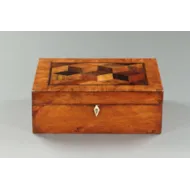
SOLD
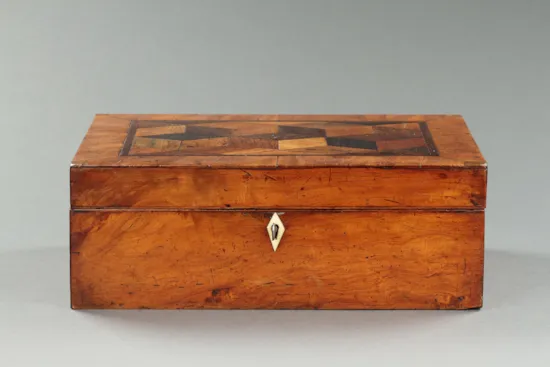
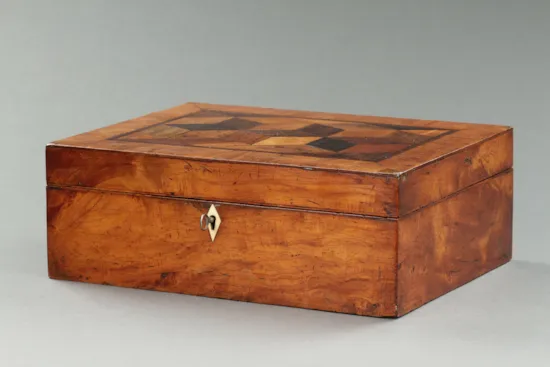
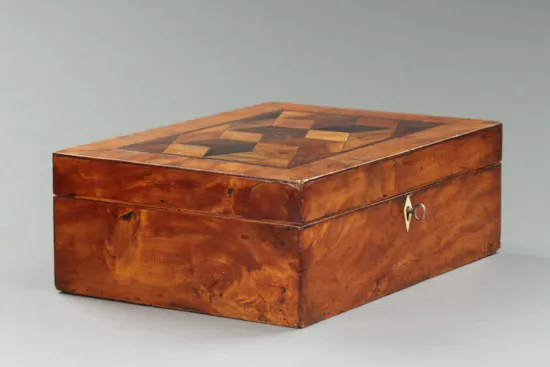
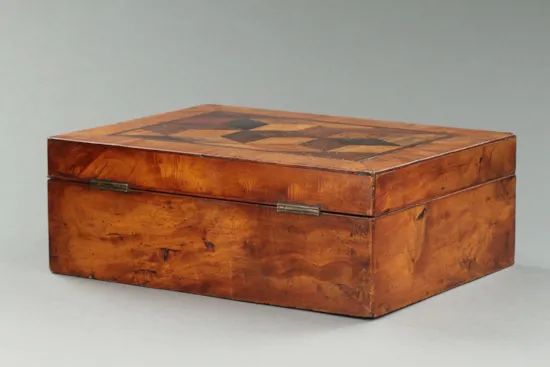
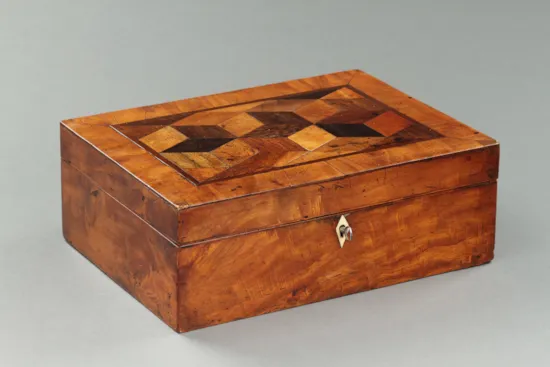
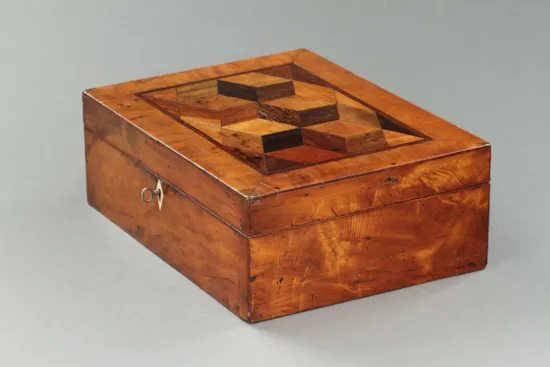
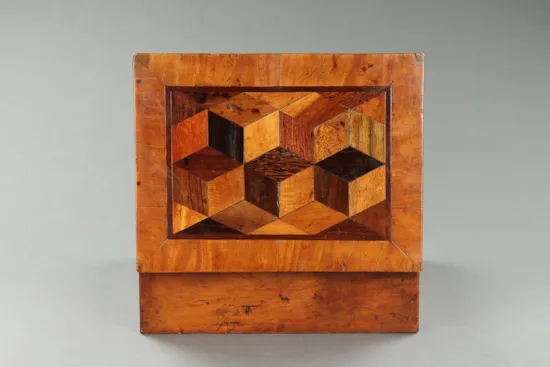
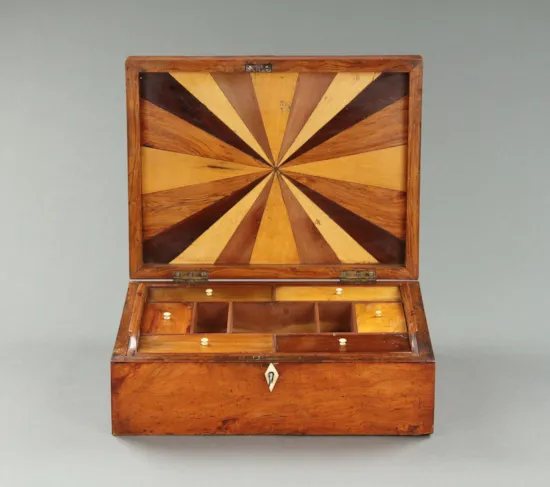
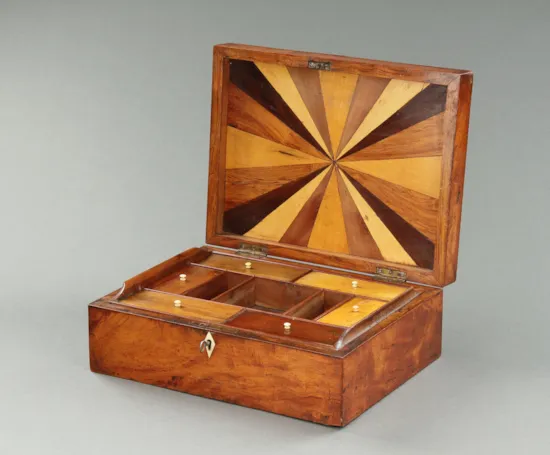
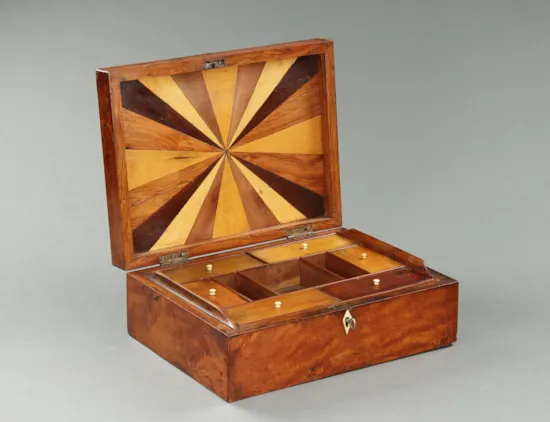
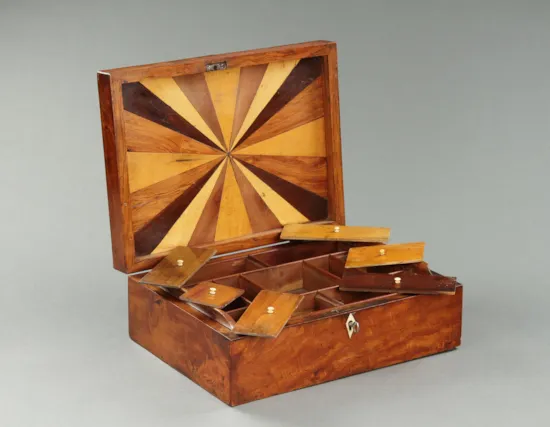
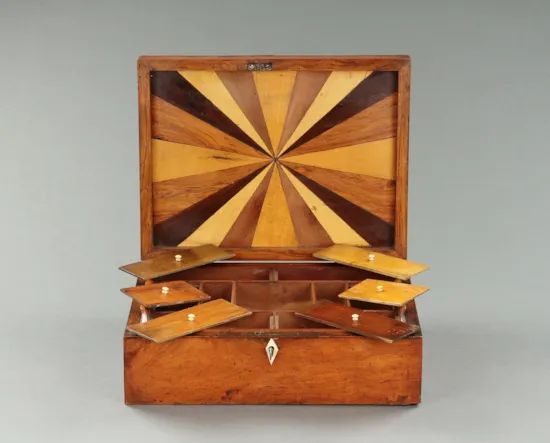
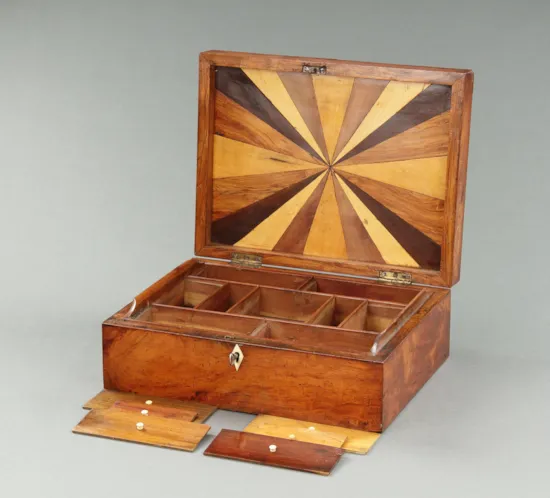
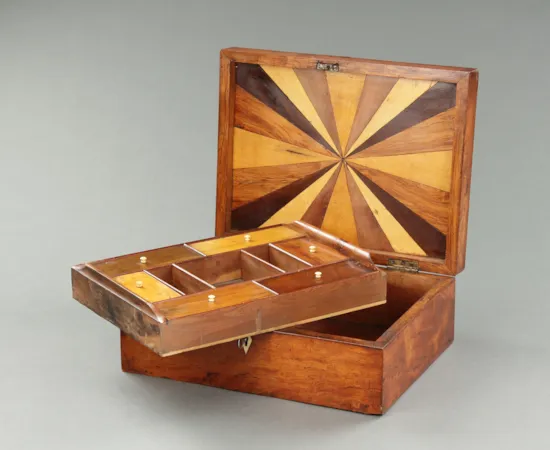
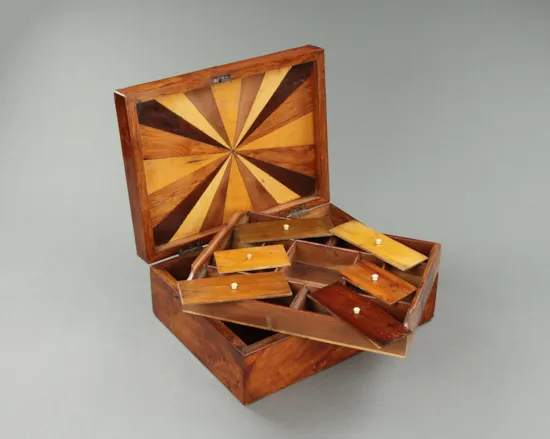















YOU MAY ALSO LIKE



